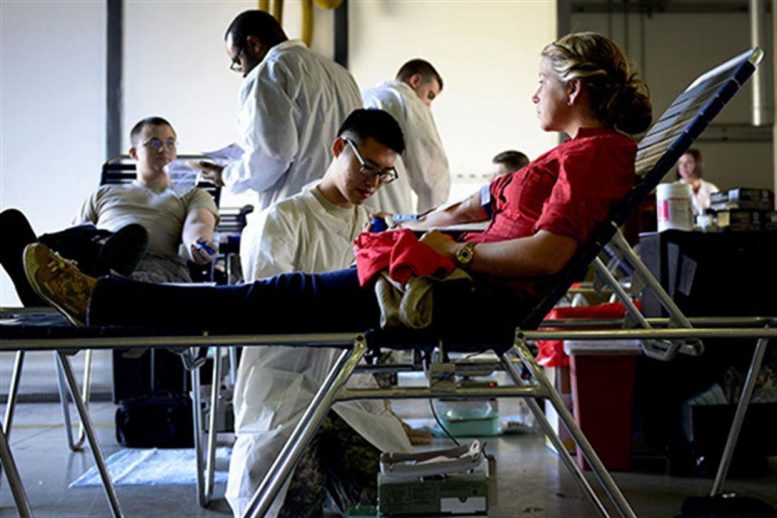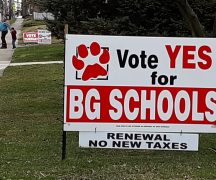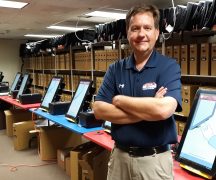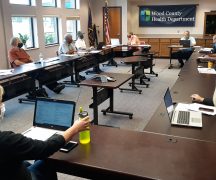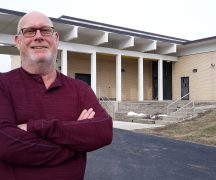BY ANDREW BAILEY
BG Independent News Correspondent
The national blood supply has been one of the many casualties of the coronavirus.
Volunteer blood donors are the only way to counteract this, said Christy Peters, external communications manager for the Red Cross in northern Ohio.
And community members have paid in kind, to ensure blood is available for those in need.
This blood shortage can be seen in every corner of the country, and the situation in northern Ohio is no different.
Because of this, every blood drive counts.
But social distancing and mass congregation concerns have led to the cancellation of many blood drives across northern Ohio, Peters said.
Since March 1, 300 blood drives in the Toledo area have been canceled due to COVID-19, Peters said.
Those are just part of nearly 2,700 canceled blood drives across the country since March 17, according to the American Red Cross.
Not only are blood drives being canceled, but finding a location to host one is a challenge as well.
Because many businesses have required employees to work from home or go on furlough, local sponsors for the Red Cross have been unable to open their doors for blood drives due to a lack of staff.
The impact of these closures hit particularly hard when schools began to shut down and move to exclusively digital education.
“Approximately 20% of the blood that is collected by the American Red Cross comes from high school and college students,” Peters said. “So, when schools were closed and students went home, we were no longer able to host those blood drives on campuses and that impacted us.”
But despite closures, the Bowling Green community has been able to find locations which the Red Cross can host their blood drives at, like libraries and community centers, Peters said.
Although these buildings are not open to the public, the Red Cross has been grateful for the Bowling Green community’s willingness to help, she said.
One of the most effective locations the Red Cross has been able to host regular blood drives at is BGSU’s Perry Field House.
The building’s open spaces makes social distancing easy for volunteers and donors alike and has allowed for the Red Cross to host blood drives almost every week.
“It (Perry Field House) has allowed us to provide a consistent location, so that our donors who would give downtown or were given a different location and didn’t know where to go, would have a consistent place that they could come and donate,” Peters said.
When shutdowns began in March, blood donation’s status as an essential service led to “a tremendous response” from blood donors, she said.
“We needed the community to continue to give despite being in the lockdown situation,” Peters said.
And the community answered the call, as they saw many of their blood drives fill up.
But the Red Cross has seen a decline of blood donations since then, and especially in recent weeks, which Peters said is typical of summer months. She also considers the gradual rollback of restrictions from the beginning of the pandemic a factor, since people may be focusing on enjoying activities they previously could not have and returning to a “new normal.”
Despite the country beginning to reopen, the blood shortage still remains. And Peters said this is a reason they need blood donors for months to come, as “there is no end to the fight against coronavirus.”
The Red Cross has seen a 30% increase in the demand for blood from local hospitals, Peters said.
“Right now, we’re asking everyone to come and give. We are facing an urgent need for blood. We’re going to continue to need donors not only now, but through the foreseeable future to help maintain our local blood supply,” she said.
This need is enumerated in the amount of blood they need for northern Ohio: 500 units per day. This daily quota supplies over 50 hospitals in the region.
In times of extreme need though, the Red Cross can ship blood across the country to supply areas that are lacking, Peters said.
But it’s the local donations that can really make a difference for the communities.
“It’s always the blood on shelves locally that saves lives, so that’s why we ask the community to give regularly, so we don’t have to be unprepared in an emergency situation,” Peters said.
To find a blood drive in your area, go to redcrossblood.org.

